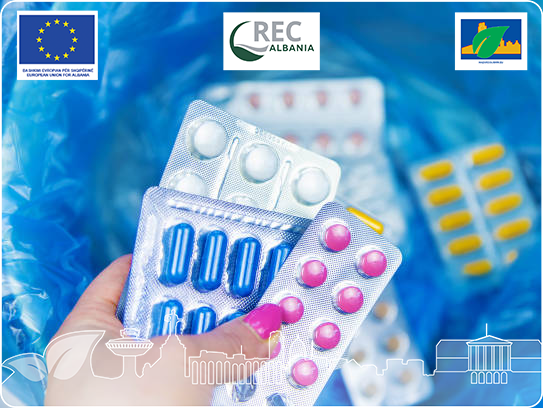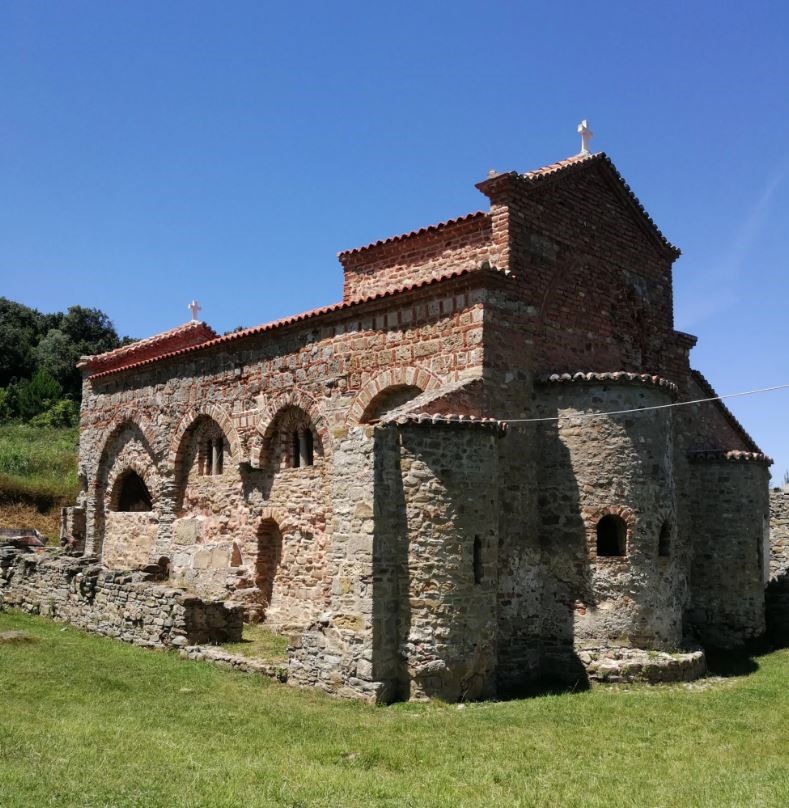Every day, we produce various wastes, and their effective management is a challenge for everyone today. Our society, like many others countries, strives to enhance the quality of life by highlighting the importance of this issue. Pharmaceutical waste, as part of hazardous waste, are widely produced and, accessing these products, that generate this waste stream, remain uncontrolled. Their incorrect management is the primary cause of a large amount of pharmaceutical waste, as well as organic and inorganic substances, being found in the environment. These wastes directly affect the balance of ecosystems components and biodiversity.
In the European Union, the obligation to implement appropriate collection systems for pharmaceutical products that are unused or expired stems from Article 127b, Directive 2004/27/EC of the European Parliament and of the Council, dated March 31, 2004, which amends the Directive 2001/83/EC on the Community code, regarding pharmaceutical products for public use (OJ L 136, 30.4.2004, p. 34–57). In most European countries, the collection system involves either returning to the pharmacy, or throwing the waste at collection points, depending on the policy and strategy implemented in each country or region. Some pharmacies participate in the process on a voluntary basis, while others are required by law to participate in a take-back scheme.
In a survey conducted in EU countries on the state and progress of these wastes, the following results were obtained:
In France, in interviews conducted online in 2022 with about 2360 citizens, 87% claimed that they returned the drugs to the pharmacy.
In Poland, around 450 citizens across the country were interviewed. From this group, about 30% stated that they throw pharmaceutical waste together with other urban waste, while 68% stated that they flush them down the toilet.
In Portugal, in direct interviews in 2014 with a sample of about 244 people, 69% of them affirmed that they returned this waste to the pharmacy, while 25% threw it in the urban landfill, 2% flushed it down the toilet , 1% sent them for recycling, and 3% sent them to other countries.
In Romania, from interviews conducted in the field in the district of Bihor, out of about 771 people questioned, only 0.7% returned them to this pharmacy, while 95.3% of them threw them in places where urban waste was collected. Also, 4% of the interviewees stated that they threw away the pharmaceutical waste in other places.
From the countries of the Western Balkans, in Serbia, about 383 citizens were asked in Bačka and Novi Sad. Respectively, 4.4% and 4.5% returned these wastes to the pharmacy, while about 80% of them threw it together with other urban waste.
The reasons why some of the respondents use inappropriate waste disposal methods are mainly:
• Lack of education or training in this field;
• Lack of a management system for the return of unused drugs;
• Convenience;
• Lack of punishment (accountability).
Of the above countries, only France and Portugal have set up a pharmaceutical waste management system, while the others are either in the process of being organized or unorganized. These facts are also consistent with the figures obtained from the study. In France, the collection of unused drugs is carried out by Cyclamed, a non-profit organization operating since 1993, which includes pharmacists, wholesale pharmaceutical distributors, and drug manufacturing companies. Their purpose is to collect unused, expired and unexpired drugs that patients return to the pharmacy.
In Portugal, the collection of household pharmaceutical waste is regulated by the National Environment Agency, but the national institution responsible for the collection and treatment of unused pharmaceutical products is Valormed, a non-profit association created by the pharmaceutical sector (industry, distributors and pharmacies).
The current legislation in Romania was compiled by the National Institute of Public Health, as the authority responsible for approving the collection of pharmaceutical waste in the country, through the segregation of waste collected from medical activities. However, the legislation only covers pharmacies, wholesale drug and pharmaceutical product distributors, drug and biological product manufacturing, storage and storage units, and research institutes. Meanwhile, for expired drugs that come from citizens, and that have to be delivered to the nearest pharmacy or pharmaceutical point as well, the law is not clear enough for the procedures in collecting these wastes, and who will bear the costs of the storage of drugs returned to pharmacies: manufacturers, pharmacies or local authorities.
Poland is an example of a country that lacks provisions related to the collection of drugs of unnecessary residents. On the one hand, municipalities are responsible for organizing a solid urban data collection system; on the other hand, there is no regulation that imposes an obligation to separate pharmaceutical waste. For consequences, the system is based on the principle of voluntary families of entities such as pharmacies or volunteer centers.
Regarding our country, we face the lack of information about this waste stream. Based on the data published by the Ministry of Health and Social Protection, about 3% of hospital waste, classified as hazardous waste, is categorized as pharmaceutical waste. This lack of information has also led to numerous legal deficiencies. So, according to the legal provisions, pharmacies are obliged to collect and send for treatment only the pharmaceutical waste that is produced by them. As for pharmaceutical waste (stock of expired or unused drugs) brought by citizens, are not in the focus of any public or private institution, and are not covered by any legal initiative. Therefore, such hazardous waste continues to be untreated and not managed properly.
REC Albania, under the care of the Municipality of Tirana, organized on October 31, in the “Tirana International Hotel”, the first informative meeting for the state of this stream in Albania. In this meeting, all the stakeholders were included, both from the state authorities and from the private sector.
In it, REC Albania staff presented the project “Tirana ime 2.0 – PharmaWipe”, which coordinates the piloting of two practical solutions for the problem of pharmaceutical waste. This project is supported by the European Union within the program “Capital cities cooperate for common challenges in the management of hazardous waste – Yerevan, Warsaw, Tirana”. The project aims to improve the traceability and proper management of pharmaceutical waste, as one of the streams of hazardous waste, which have not yet found the proper way of management at the local level.
It seeks to promote the proper organization for their collection, to create a reference system on how to manage this information, and to further develop local awareness policies in this area. Cooperation between all actors in this field is the main mission that will promote this initiative, and the awareness is a necessity for the integrity of the project. For this reason, the use of the application created by Vodafone and the Municipality of Tirana “Tirana ime 2.0”, looks like the right digital tool that will help this idea.
The participants welcomed the idea brought by REC Albania with curiosity and discussions, and, despite the difficulties of implementing this initiative, they expressed their willingness to helping in fulfilling its goals.
*This document has been produced with the financial assistance of the European Union. The contents of this document are the sole responsibility of Resource Environmental Center (REC) in Albania and can under no circumstances be regarded as reflecting the position of the European Union.’





